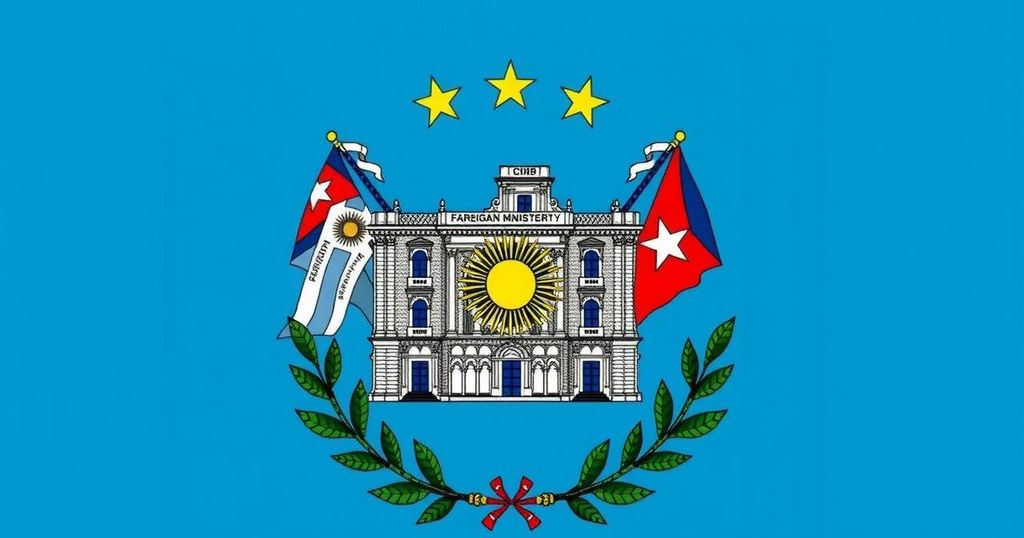President Javier Milei has reshaped Argentina’s Foreign Ministry, dismissing Foreign Minister Diana Mondino for supporting the U.S. embargo on Cuba. He appointed Gerardo Werthein as her successor and announced a review of ministry personnel to eliminate dissenting voices. This marks a departure from Argentina’s traditional foreign policy approach, aiming for closer ties with the U.S. and Israel, while opposing regimes that violate human rights.
President Javier Milei has initiated a transformation of Argentina’s Foreign Ministry, beginning with the dismissal of Foreign Minister Diana Mondino. This decision follows Argentina’s controversial vote at the United Nations in favor of lifting the long-standing U.S. embargo on Cuba, a stance the Milei administration deems contradictory to its commitment to freedom. Mondino, who was aligned with the prior government’s diplomatic approach, was replaced by Gerardo Werthein, the Argentine Ambassador to the United States. The administration has announced an extensive audit of Foreign Ministry personnel, targeting individuals who promote agendas contrary to the administration’s ethos of freedom. In the recent UN vote, only the United States and Israel opposed the resolution calling for an end to the embargo on Cuba, while Argentina broke with its historical stance against it, a move that has drawn scrutiny in diplomatic circles, especially given Argentina’s aspirations for strong ties with the United States and Israel. President Milei’s office issued a statement opposing the Cuban regime and all governments that undermine human rights. This marks a significant shift from Argentina’s previous support for left-wing international causes. The government has emphasized the need for alignment among diplomatic staff with its foreign policy priorities, implying that dissenting views will not be tolerated. The Presidential Spokesperson noted that those who do not support the new direction of the government are invited to resign rather than oppose the President’s agenda. Milei’s administration is keen to solidify its stance against regimes it perceives as oppressive while seeking to bolster ties with traditional allies.
President Javier Milei came to power with a clear agenda that aligns closely with pro-Western countries, particularly in its diplomatic relations with the United States and Israel. Historically, Argentina had maintained a more neutral or even sympathetic stance towards leftist governments in Latin America, which often led them to vote in favor of resolutions supporting those regimes at international forums such as the UN. The recent shift in foreign policy under Milei’s direction highlights a decisive break from this historical precedent, aiming instead to foster closer bilateral relationships with nations that align with capitalist and democratic ideals.
In summary, President Javier Milei’s administration is aggressively realigning Argentina’s foreign policy to align with the United States and Israel, highlighted by the dismissal of Foreign Minister Diana Mondino for opposing the U.S. embargo on Cuba. The government’s commitment to an agenda of freedom has led to an audit of Foreign Ministry personnel and an invitation for dissenters to resign, illustrating Milei’s intent to foster a diplomatic team that mirrors his foreign relations philosophy. This represents a significant shift from Argentina’s previous stances on global issues, particularly regarding its historical support of leftist regimes.
Original Source: www.batimes.com.ar







